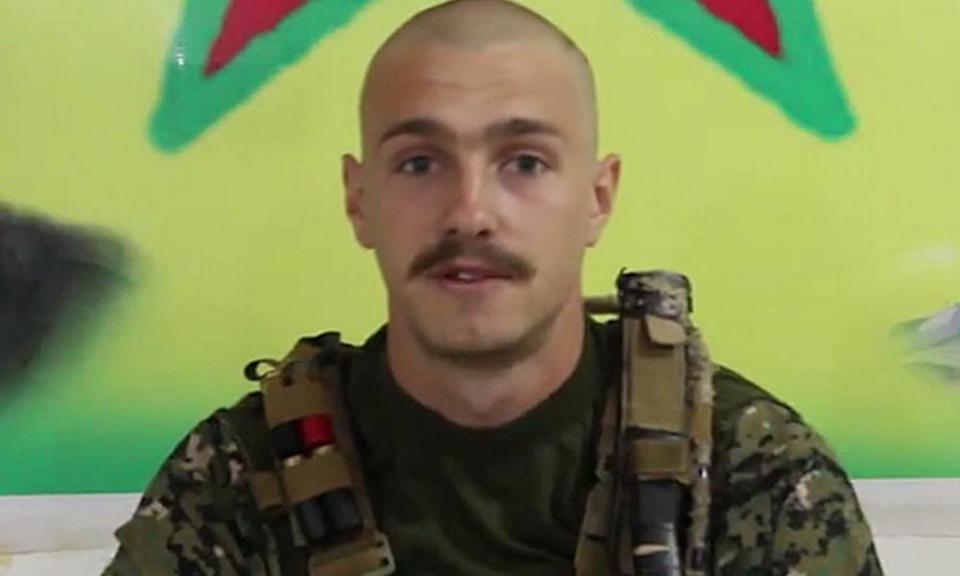Briton killed in Syria after volunteering to fight Isis, inquest told

A British engineer was killed in Syria while trying to clear a house booby-trapped with bombs after volunteering to fight against Islamic State following the Manchester terrorist attack, an inquest heard.
The coroner David Horsley ruled that Ollie Hall, 24, died on active service while serving with the Kurdistan People’s Protection Units (YPG) and paid tribute to his “outstanding example of courage and self-sacrifice”.
An inquest in Portsmouth heard Hall was so angered by the Manchester bomb attack that he decided to join Kurdish fighters in Syria.
The telecoms engineer left for Iraq via Germany on 18 August last year and met up with YPG, attending its training academy in Rojava, northern Syria, for five weeks before working to clear mines and explosives in Raqqa, where he died on 25 November.
His mother, Jane Lyndon, said her son had not told her of his plans until he had arrived in the Middle East. She said that on the day he left, he gave her £20 to pay for a taxi to get home from work.
“He said, ‘I love you Mum’ and I said ‘I love you’, and that was the last time I saw him,” she said.
Describing him as having a strong personality, she said he was angered by terrorist attacks in the UK and Europe and his belief the government was not taking action.
She said: “I knew he was mad about them but we had no idea he felt so strongly.”
Lyndon, a nurse, said she had been told her son went into a house in Raqqa after an elderly man and his daughter had been concerned about booby-traps.
Jonathon Duncan, a friend, said Hall had been planning to go to Syria for about six months and had given up smoking and drinking and got fit before leaving.
He said recent terrorist attacks in the UK had inspired him to volunteer and added: “The one in Manchester was a bit too close to home.”
Brett Lockyer, a pathologist, said Hall died of multiple trauma injuries likely to have been caused by two bombs.
Horsley recorded a narrative verdict, saying Hall, who was from Portsmouth, died “on active service with Kurdish forces”, adding: “He gave his life to protect the safety of others.”
The coroner continued: “He was someone who felt deeply about the world and its problems and resolved to do something about it himself to bring an end to terrorism and repression. So deep was his commitment that he gave up the secure and comfortable life in his family home.
“His actions have made him a hero in the Kurdish community. He also should be an outstanding example of courage and self-sacrifice to whoever hears his story.”
Outside court, his mother said she hoped others would not follow in his footsteps. She said: “We just want to say that we are so proud of Ollie. I wish he had never gone, but we are proud of what he did. We wouldn’t want other people to go out there.
“From everyone I speak to out there, he was very popular and well-liked. One friend said he was not a soldier when he went out there but he became a soldier and then some.”
Describing how she felt when he told her by text message that he had travelled to the Middle East, she said: “I was absolutely devastated, I just had this feeling that I am not going to see him again.
“I couldn’t be mad with him, he was in Syria and I didn’t want to lose communication with him. Some days he would be messaging me from 4am to midnight. We will always be proud of him, we just wish he hadn’t gone.”

 Yahoo News
Yahoo News 